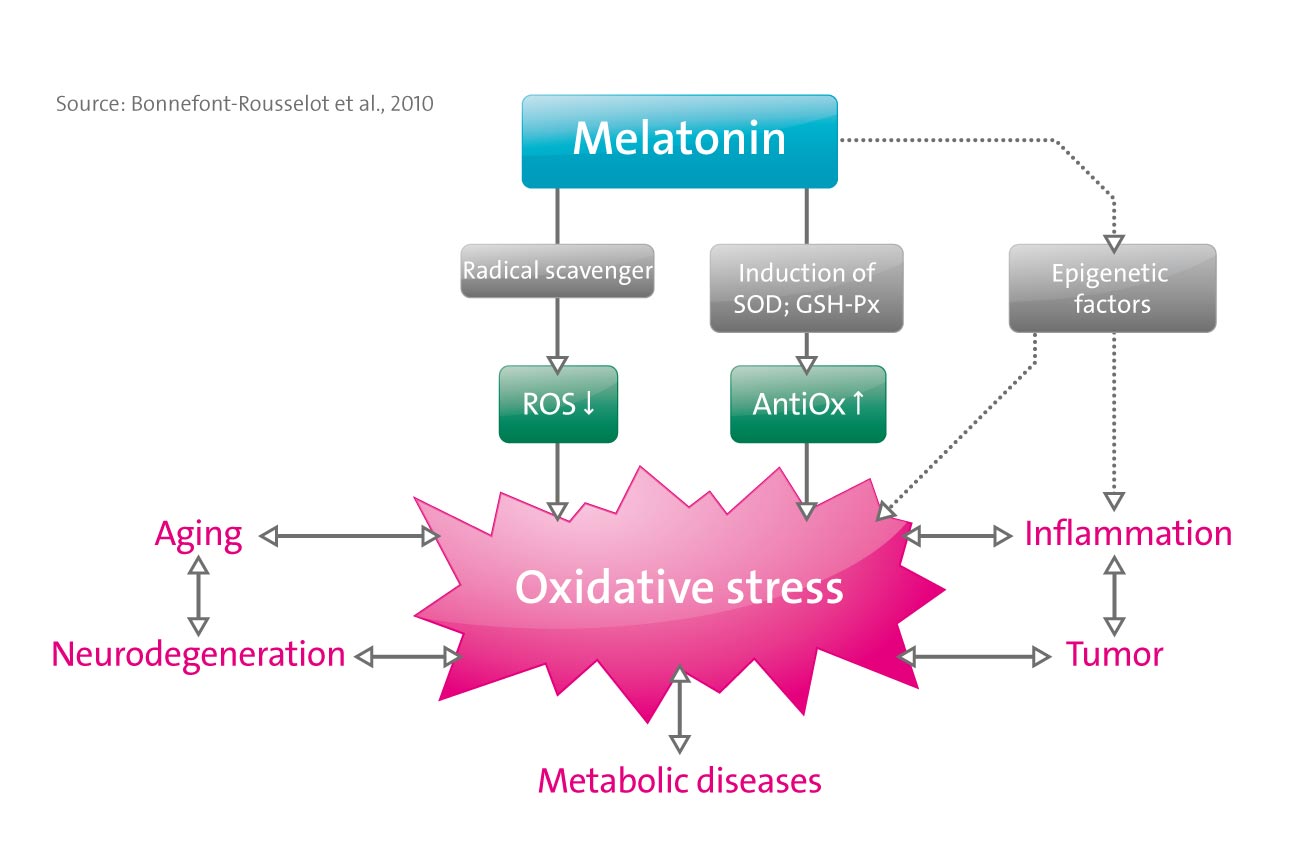This review aims at describing the beneficial properties of melatonin related to its antioxidant effects. Oxidative stress, i.e., an imbalance between the production of reactive oxygen species and antioxidant defences, is involved in several pathological conditions such as cardiovascular or neurological disease, and in aging. Therefore, research for antioxidants has developed. However, classical antioxidants often failed to exhibit beneficial effects, especially in metabolic diseases.
Melatonin has been shown as a specific antioxidant due to its amphiphilic feature that allows it to cross physiological barriers, thereby reducing oxidative damage in both lipid and aqueous cell environments. Studies on the antioxidant action of melatonin are reported, with a special mention to water gamma radiolysis as a method to produce oxygen-derived free radicals, and on structure-activity relationships of melatonin derivatives.
Mass spectrometry-based techniques have been developed to identify melatonin oxidation products. Besides its ability to scavenge several radical species, melatonin regulates the activity of antioxidant enzymes (indirect antioxidant properties). Efficient detection methods confirmed the presence of melatonin in several plant products.
Therapeutic potential of melatonin relies either on increasing melatonin dietary intake or on supplementation with supraphysiological dosages. Clinical trials showed that melatonin could be efficient in preventing cell damage, as well under acute (sepsis, asphyxia in newborns) as under chronic (metabolic and neurodegenerative diseases, cancer, inflammation, aging). Its global action on oxidative stress, together with its rhythmicity that plays a role in several metabolic functions, lead melatonin to be of great interest for future clinical research in order to improve public health.
